Our Sacred Honor Read online
O U R S A C R E D H O N O R
(A LUKE STONE THRILLER—BOOK 6)
J A C K M A R S
Jack Mars
Jack Mars is the USA Today bestselling author of the LUKE STONE thriller series, which include the suspense thrillers ANY MEANS NECESSARY (book #1), OATH OF OFFICE (book #2), SITUATION ROOM (book #3), OPPOSE ANY FOE (book #4), PRESIDENT ELECT (book #5), OUR SACRED HONOR (book #6), and HOUSE DIVIDED (book #7).
ANY MEANS NECESSARY (book #1), which has over 500 five star reviews, is available as a free download on Kobo!
Jack loves to hear from you, so please feel free to visit www.Jackmarsauthor.com to join the email list, receive a free book, receive free giveaways, connect on Facebook and Twitter, and stay in touch!
Copyright © 2017 by Jack Mars. All rights reserved. Except as permitted under the U.S. Copyright Act of 1976, no part of this publication may be reproduced, distributed or transmitted in any form or by any means, or stored in a database or retrieval system, without the prior permission of the author. This ebook is licensed for your personal enjoyment only. This ebook may not be re-sold or given away to other people. If you would like to share this book with another person, please purchase an additional copy for each recipient. If you’re reading this book and did not purchase it, or it was not purchased for your use only, then please return it and purchase your own copy. Thank you for respecting the hard work of this author. This is a work of fiction. Names, characters, businesses, organizations, places, events, and incidents either are the product of the author’s imagination or are used fictionally. Any resemblance to actual persons, living or dead, is entirely coincidental. Jacket image Copyright evantravels, used under license from Shutterstock.com.
BOOKS BY JACK MARS
LUKE STONE THRILLER SERIES
ANY MEANS NECESSARY (Book #1)
OATH OF OFFICE (Book #2)
SITUATION ROOM (Book #3)
OPPOSE ANY FOE (Book #4)
PRESIDENT ELECT (Book #5)
OUR SACRED HONOR (Book #6)
HOUSE DIVIDED (Book #7)
FORGING OF LUKE STONE PREQUEL SERIES
PRIMARY TARGET (Book #1)
KENT STEELE SPY SERIES
AGENT ZERO (Book #1)
Listen to the LUKE STONE THRILLER series in audio book format!
Now available on:
Amazon
Audible
iTunes
CONTENTS
CHAPTER ONE
CHAPTER TWO
CHAPTER THREE
CHAPTER FOUR
CHAPTER FIVE
CHAPTER SIX
CHAPTER SEVEN
CHAPTER EIGHT
CHAPTER NINE
CHAPTER TEN
CHAPTER ELEVEN
CHAPTER TWELVE
CHAPTER THIRTEEN
CHAPTER FOURTEEN
CHAPTER FIFTEEN
CHAPTER SIXTEEN
CHAPTER SEVENTEEN
CHAPTER EIGHTEEN
CHAPTER NINETEEN
CHAPTER TWENTY
CHAPTER TWENTY ONE
CHAPTER TWENTY TWO
CHAPTER TWENTY THREE
CHAPTER TWENTY FOUR
CHAPTER TWENTY FIVE
CHAPTER TWENTY SIX
CHAPTER TWENTY SEVEN
CHAPTER TWENTY EIGHT
CHAPTER TWENTY NINE
CHAPTER THIRTY
CHAPTER THIRTY ONE
CHAPTER THIRTY TWO
CHAPTER THIRTY THREE
CHAPTER THIRTY FOUR
CHAPTER THIRTY FIVE
CHAPTER THIRTY SIX
CHAPTER THIRTY SEVEN
CHAPTER THIRTY EIGHT
CHAPTER THIRTY NINE
CHAPTER FORTY
CHAPTER FORTY ONE
CHAPTER FORTY TWO
CHAPTER FORTY THREE
CHAPTER FORTY FOUR
CHAPTER FORTY FIVE
CHAPTER FORTY SIX
CHAPTER FORTY SEVEN
“…we mutually pledge to each other our lives, our fortunes, and our sacred honor.”
Thomas Jefferson
The Declaration of Independence
CHAPTER ONE
December 9th
11:45 p.m. Lebanon Time (4:45 p.m. Eastern Standard Time)
Southern Lebanon
“Praise God,” the young man said. “Praise Him. Praise Him.”
He took a long drag from his cigarette, his hand shaking as he reached to his mouth. He hadn’t eaten in twelve hours. For the past four hours, the world around him had been entirely black. He was a truck driver, skilled at driving the biggest rigs, and he had driven this one across the border from Syria, then through the hilly Lebanese countryside, moving slow on winding roads, lights off the entire way.
It was a dangerous drive. The sky was filled with drones, with helicopters, with spy planes, and with bombers—Russian, American, and Israeli. Any one of these could become interested in this truck. Any one of these could decide to destroy the truck, and do so effortlessly. He drove the entire way expecting that at any moment, a missile would hit him without warning, rendering him a flaming skeleton sitting inside a burned out steel relic.
Now he had just pulled the truck up a long, narrow path and parked it under an awning. The awning, held up with wooden legs, was made to look from the sky like typical forest cover—in fact, the top of it was covered with dense brush. Its location was right where they had said it would be.
He turned the truck off, the engine farting and belching, black smoke pouring from a stack on the driver’s side as the thing shut itself down. He opened the door to the cab and climbed down. As soon as he did so, a squad of heavily armed men materialized like ghosts, emerging from the surrounding woods.
“As salaam alaikum,” the young truck driver said as they approached.
“Wa alaikum salaam,” the militia leader said. He was tall and burly, with a thick black beard and dark eyes. His face was hard—there was no compassion in it. He gestured at the truck. “Is this it?”
The young man took another shaky drag from his cigarette. No, he almost said. Some other truck is it. This one is nothing.
“Yes,” he said instead.
“You’re late,” the militia leader said.
The young man shrugged. “You should have driven in that case.”
The leader stared at the truck. It looked like a typical tractor-trailer—perhaps something carrying lumber, or furniture, or foodstuffs. But it wasn’t. The militiamen went right to work on it, two climbing the back ladder to the top, two kneeling near the bottom. Each man had a battery-powered screwdriver.
Moving quickly, they removed the screws one by one that held the tractor-trailer fiction together. Within moments, they pulled a large piece of aluminum sheet metal off the side. A moment later, they pulled a narrower sheet off the back. Then they were working on the other side, where the driver could no longer see them.
He turned and looked out at the nighttime hillsides and forest. Across the darkness, he could see the lights of a village twinkling several miles away. Beautiful country. He was very glad to be here. His job was done. He was not a militiaman. He was a truck driver. They had paid him to go across the border and pick up this truck.
He was also not from this region—he lived far to the north. He had no idea what arrangements these men had made for his return home, but he didn’t care. Rid of the infernal machine he had just driven, he would gladly walk from here.
Headlights were coming up the narrow rutted road, a whole series of them. Seconds later, a line of three black Mercedes SUVs appeared. The doors opened in unison and gunmen poured from each car. Each man carried a heavy rifle or machine gun. The rear door of the middle car opened last.
A heavyset man with a salt-and-pepper b
eard and glasses pulled himself from the SUV. He leaned on a knobby wooden stick and walked with a pronounced limp—the residue of a car bomb attempt on the man’s life two years ago.
The young driver recognized the man instantly—he was certainly the most famous man in Lebanon, and well known throughout the world. His name was Abba Qassem, and he was the absolute leader of Hezbollah. His authority—in matters of military operations, social programs, relations with foreign governments, crime and punishment, life and death—was unquestioned.
His presence made the driver nervous. It came on suddenly, like a stomach sickness. There were the nerves that came with meeting any celebrity, yes. But there was more to it than that. Qassem being here meant that this truck—whatever it might be—was important. Much more important than the driver had realized.
Qassem hobbled to the truck driver, surrounded by his bodyguards, and gave him an awkward hug.
“My brother,” he said. “You are the driver?”
“Yes.”
“Allah will reward you.”
“Thank you, Sayyid,” the driver said, calling him by a title of honor, suggesting that Qassem was a direct descendent of Mohammed himself. The driver was hardly a devout Muslim, but people like Qassem seemed to enjoy that sort of thing.
They turned together. The men had already finished removing the sheet metal covering from the truck. Now the real truck was revealed. The front of it was much as it had appeared to be—the cab of a trailer truck, painted a deep green color. The long rear of the truck was a flat, two-cylinder missile launch platform. Resting inside each of the launch cylinders was a large silver missile, shiny and metallic.
The two parts of the truck were separate and independent of each other, but were attached by a hydraulic system in the middle, and steel chains on either side. That explained why the truck had been difficult to control—the rear section was not secured to the front as tightly as the driver might have chosen.
“A transporter-erector-launcher, they call it,” Qassem said, explaining to the driver what he had just driven here. “And just one of many the Perfect One has seen fit to bring us.”
“Yes?” the driver said.
Qassem nodded. “Oh yes.”
“And the missiles?”
Qassem smiled. It was beatific and calm, the smile of a saint. “Very advanced weaponry. Long distance. As accurate as anything in this world. More powerful than we have ever known before. God willing, we will use these weapons to bring our enemies to their knees.”
“Israel?” the driver said. He nearly choked on the word. The urge came upon him to start walking north right this moment.
Qassem put a hand on the driver’s shoulder. “God is great, my brother. God is great. Very soon, everyone will know exactly how great.”
He stepped away, limping toward the missile launcher. The driver watched him go. He took one last drag on his cigarette, which he had smoked down to the nub. He was feeling a little better, calmer. This job was over. These maniacs could start another war if they wanted—it likely wouldn’t reach the north.
Qassem turned around then and looked at him. “Brother,” he said.
“Yes?”
“These missiles are a secret, you know. No one can hear of them.”
The driver nodded. “Of course.”
“You have friends, family?”
The driver smiled. “I do. A wife, three children. Little ones. I still have my mother. I am well known in my village and the nearby areas. I have played the violin since I was very young, and everyone demands a song from me.”
He paused. “It’s a full life.”
The sayyid nodded, a little sadly.
“Allah will reward you.”
The driver didn’t like the sound of that. It was the second time Qassem had mentioned such a reward. “Yes. Thank you.”
Near Qassem, two big men took rifles down from their shoulders. A second later, they held them ready, aimed at the driver.
The driver barely moved. This didn’t seem right. It was happening so fast. His heart pounded in his ears. He could not feel his legs. Or his arms. Even his lips were numb. For a second, he tried to think of anything he might have done to offend them. Nothing. He had done nothing. All he had done was bring the truck here.
The truck… was a secret.
“Wait,” he said. “Wait! I won’t tell anyone.”
Qassem shook his head now. “The All-Knowing has seen your good work. He will open the gates of Paradise to you this very evening. This is my promise to you. This is my prayer.”
Much too late, the driver turned to run.
An instant later, he heard the loud CRACK as the first gun fired.
And he realized, as the ground came rushing up to meet him, that his entire life had been in vain.
CHAPTER TWO
December 11
9:01 a.m. Eastern Standard Time
The Oval Office
The White House, Washington, DC
Susan Hopkins almost couldn’t believe what she was watching.
She stood on the carpet in the sitting area of the Oval Office—the comfortable high-backed chairs had been removed for this morning’s festivities. Thirty people packed the room. Kurt Kimball and Kat Lopez stood near her, as well as Haley Lawrence, her Secretary of Defense.
The White House Residence staff were all here at her insistence, the chef, the servers, the domestic staff, mingling among other invited guests—the directors of the National Science Foundation, NASA, and the National Park Service, to name a few. A handful of news media personalities were here, as well as two or three carefully selected camera people. There were many Secret Service agents, lining the walls and peppered among the crowd.
On a large TV monitor mounted near the far wall, Stephen Lief, a man whom Susan could expect to never see in the flesh until her term as President was over, was about to take the Vice Presidential Oath of Office. Stephen was late middle-aged, owlish in round glasses, hair gray and thinning and receding across the top of his skull like an army in disordered retreat. He had a vaguely pear-shaped body, hidden inside a three-thousand-dollar blue pinstriped Armani suit.
Susan had known Stephen a long time. He would have been her main competition in the most recent election, if Jeff Monroe hadn’t interceded. Before that, in her Senate days, he was the loyal opposition across the aisle from her, a moderate conservative, unremarkable—pig-headed but not deranged. And he was a nice man.
But he was also the wrong party, and she had taken a lot of heated criticism from liberal quarters for that. He was landed aristocracy, old money—a Mayflower person, the closest thing that America had to nobility. At one time, he had seemed to think that becoming President was his birthright. Not Susan’s type—entitled aristocrats tended to lack the common touch that helped you connect with the people you were supposedly there to serve.
It was a measure of how deeply Luke Stone had gotten inside her skin that she considered Stephen Lief at all. He was Stone’s idea. Stone had brought it up to her playfully, while the two were lying together in her big Presidential bed. She had been pondering out loud about possible Veep candidates, and then Stone said:
“Why not Stephen Lief?”
She had almost laughed. “Stone! Stephen Lief? Come on.”
“No, I mean it,” he said.
He was lying on his side. His nude body was thin but rock hard, chiseled, and covered with scars. Thick bandaging still covered his recent bullet wound—it was molded to his torso along the left side. The various wounds didn’t bother her—they made him sexier, more dangerous. His dark blue eyes watched her from deep inside his weathered Marlboro Man face, half a mischievous smile on his lips.
“You’re beautiful, Stone. Like an ancient Greek statue, uh, wearing a bandage. But maybe you better let me do the thinking. You can just recline there, looking pretty.”
“I interviewed him at his farm down in Florida,” Stone said. “I was asking him what he knew about Jefferson Monroe and el
ection fraud. He came clean to me very quickly. And he’s good with horses. Gentle. That has to count for something.”
“I’ll keep that in mind,” Susan said. “The next time I’m looking for a ranch hand.”
Stone shook his head, but kept smiling. “The country is fractured, Susan. Recent events have made the feelings worse than ever. You’re still doing okay, but Congress has the lowest approval ratings in American history. If you can believe the polls, then politicians, the Taliban, and the Church of Satan all rate well with a similar percentage of Americans. Lawyers, the IRS, and the Italian Mafia have much higher approval numbers.”
“And you say that because…”
“Because what the American people want now is for right and left, liberal and conservative, to come together a little bit and start to get some things done on behalf of this country. The roads and bridges need to be rebuilt, the train system belongs in a museum, the public schools are falling apart, and we haven’t built a new major airport in almost thirty years. We’re ranked thirty-second in healthcare, Susan. That’s low. Can there really be thirty-one other countries ahead of us? Because I tell you, I’ve been around the world, and I run out of good countries at twenty-one or twenty-two. That puts us behind a bunch of bad ones.”
She sighed. “If we had some buy-in from conservatives, we might be able to get my infrastructure package through…”
He tapped her forehead. “Now you’re using your noodle. Lief did eighteen years in the Senate. He knows the game as well as anybody.”
“I thought politics wasn’t your thing,” she said.
“It’s not.”
She shook her head. “That’s what scares me.”
He started moving toward her. “Don’t be scared. I’ll tell you what is my thing.”
“Do tell.”
“Getting physical,” he said. “With someone like you.”
Now she shook the memories away, a ghost of a smile on her face. She had drifted there for a bit. On the TV monitor, Stephen Lief was getting ready to take his oath. It was happening in her old study at the Naval Observatory. She remembered the room and the house well. It was the beautiful, turreted and gabled Queen Anne–style 1850s mansion on the grounds of the Naval Observatory in Washington, DC. For decades, it had been the official residence of the Vice President of the United States.

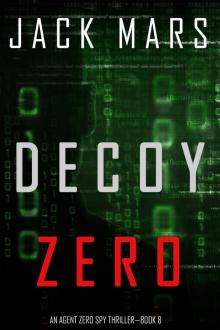 Decoy Zero
Decoy Zero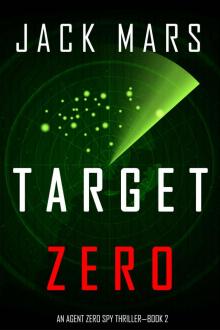 Target Zero
Target Zero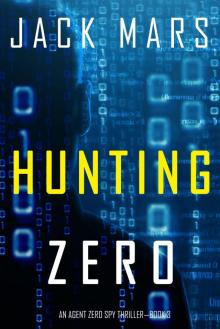 Hunting Zero
Hunting Zero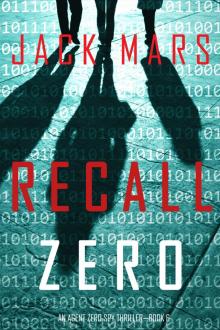 Recall Zero
Recall Zero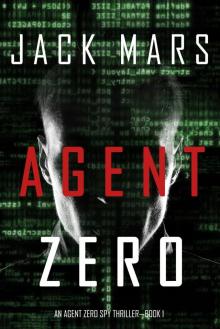 Agent Zero
Agent Zero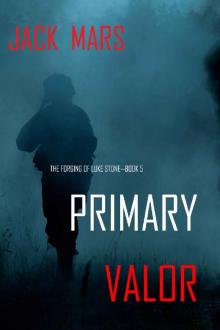 Primary Valor
Primary Valor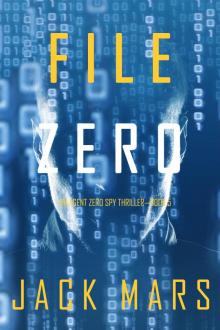 File Zero
File Zero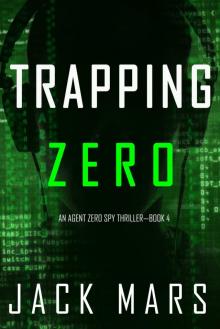 Trapping Zero
Trapping Zero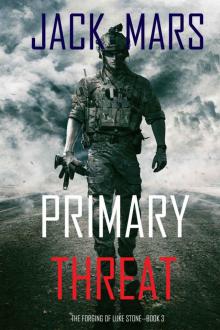 Primary Threat
Primary Threat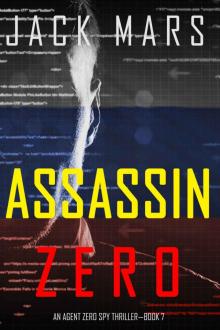 Assassin Zero
Assassin Zero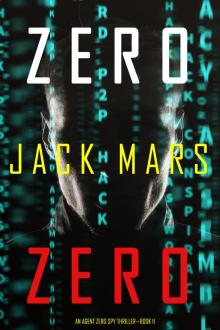 Zero Zero
Zero Zero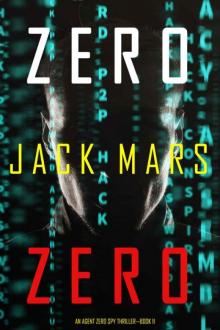 Zero Zero (An Agent Zero Spy Thriller—Book #11)
Zero Zero (An Agent Zero Spy Thriller—Book #11)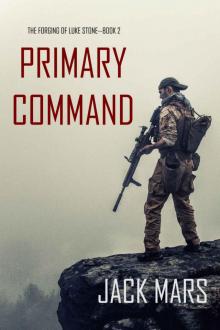 Primary Command
Primary Command![[Luke Stone 02.0] Oath of Office Read online](http://i1.bookreadfree.com/i/03/21/luke_stone_02_0_oath_of_office_preview.jpg) [Luke Stone 02.0] Oath of Office
[Luke Stone 02.0] Oath of Office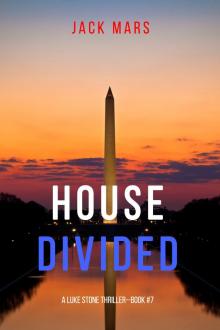 House Divided
House Divided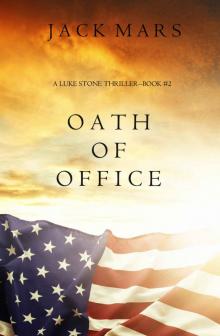 Oath of Office (a Luke Stone Thriller—Book #2)
Oath of Office (a Luke Stone Thriller—Book #2)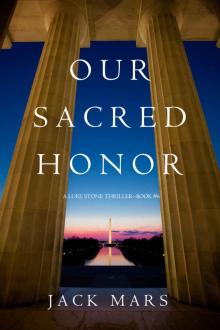 Our Sacred Honor (A Luke Stone Thriller—Book 6)
Our Sacred Honor (A Luke Stone Thriller—Book 6)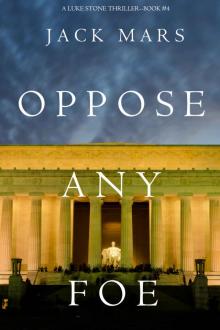 Luke Stone 04 - Oppose Any Foe
Luke Stone 04 - Oppose Any Foe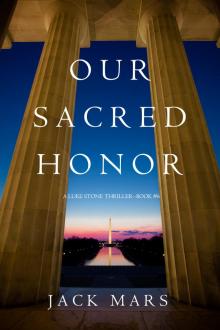 Our Sacred Honor
Our Sacred Honor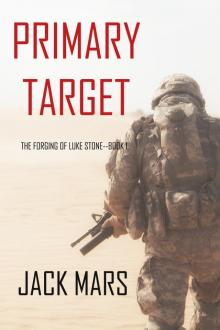 Primary Target
Primary Target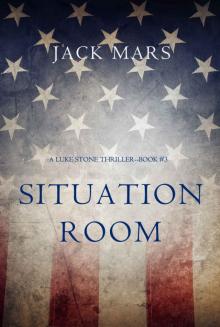 Luke Stone 03 - Situation Room
Luke Stone 03 - Situation Room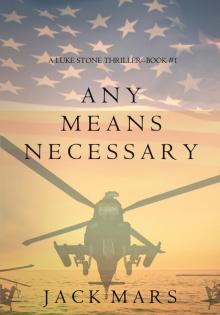 Any Means Necessary: A Luke Stone Thriller (Book 1)
Any Means Necessary: A Luke Stone Thriller (Book 1)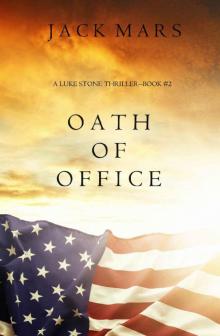 Oath of Office
Oath of Office